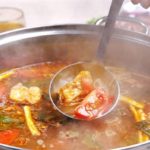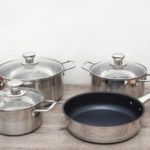Cookware in the kitchen usually has a long “lifespan” but a limited period of use. Lifespan here means that they are still functional without being damaged, pierced, or deformed, because they are made of metal. However, the period of use refers to using them without causing any harm to the user’s health.
The kitchen is a space for taking care of family health, as the ancients said that diseases enter through the mouth, so cooking and eating are extremely important for the body.
Because metal pans are often very long-lasting, dented, and damaged, many families believe that they can use them for a lifetime. However, some pans have a limited period of use, especially non-stick pans. When the pan shows the following signs: scratches, discoloration, peeling non-stick coating, it is time to replace it.
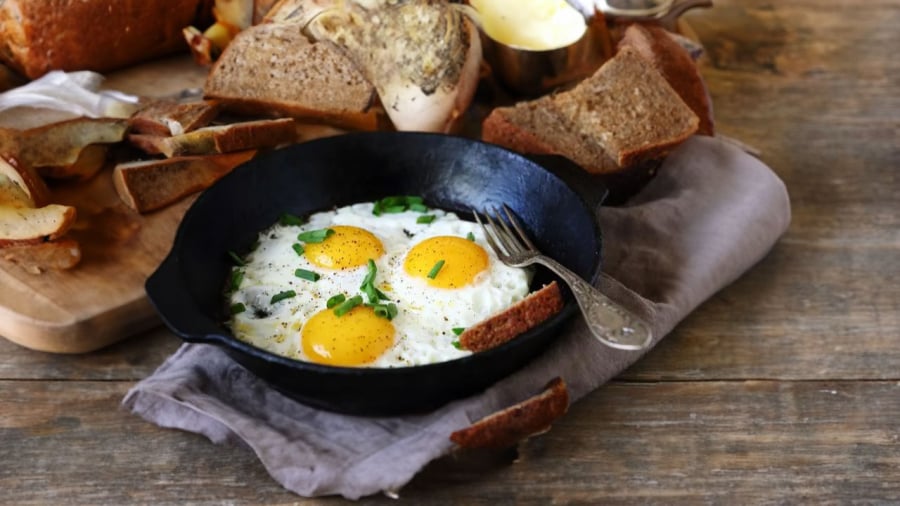
Regular aluminum pans without non-stick coating can also be harmful when scratched, but non-stick pans are even more dangerous.
Scratches on non-stick pans are very dangerous. The surface of non-stick pans is usually covered with a layer of Teflon. This material creates a smooth and slippery surface, making it easier to clean and preventing food from sticking when frying or cooking. Teflon is a widely used material in daily life, but its durability is not high. After a period of use, Teflon can corrode and scratch…
If we cook at high temperatures, the Teflon in the pan can release toxic substances such as perfluorooctanoic acid (PFOA), Perfluoisobutylene… These substances can cause chest pain, difficulty breathing, and even cancer and miscarriage when consumed through food. The US Environmental Protection Agency has also labeled perfluorooctanoic acid (PFOA) as a carcinogen.
Therefore, according to experts, when the surface of a non-stick pan is scratched or deformed, it should not be used anymore as it affects both the taste of the food and health. Scientists have found that just one scratch on a non-stick pan can release 9100 plastic particles into the food. Eating them can have unforeseen consequences for health.
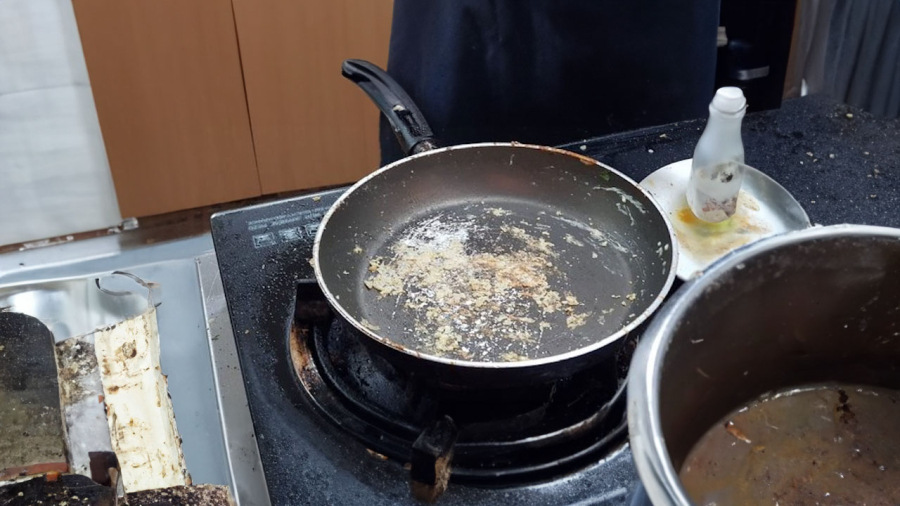
Safe way to use non-stick pans:
The maximum limit when a non-stick pan is not scratched is 5 years. If they are already scratched, they are not safe to use even if they are newly purchased. If you use them daily or 3-4 times a week, make sure to replace the non-stick pan every 4-5 years to ensure safety and good health.
Newly purchased non-stick pans should be boiled with boiling water to remove excess oil from the production process.
After using a non-stick pan, it should be cleaned and hung up to dry.
Dry the pan before adding oil and then heat it on the stove to avoid heating a new pan with oil, which can quickly cause the non-stick coating to peel off. Moreover, when finished cooking, do not pour cold water into the hot pan, as it will cause the non-stick coating to peel off faster.
During the cooking process with a non-stick pan, use low or medium heat and reduce the temperature if the pan gets too hot or smoky.
When arranging pans, avoid stacking them on top of each other, as this will cause more scratches.
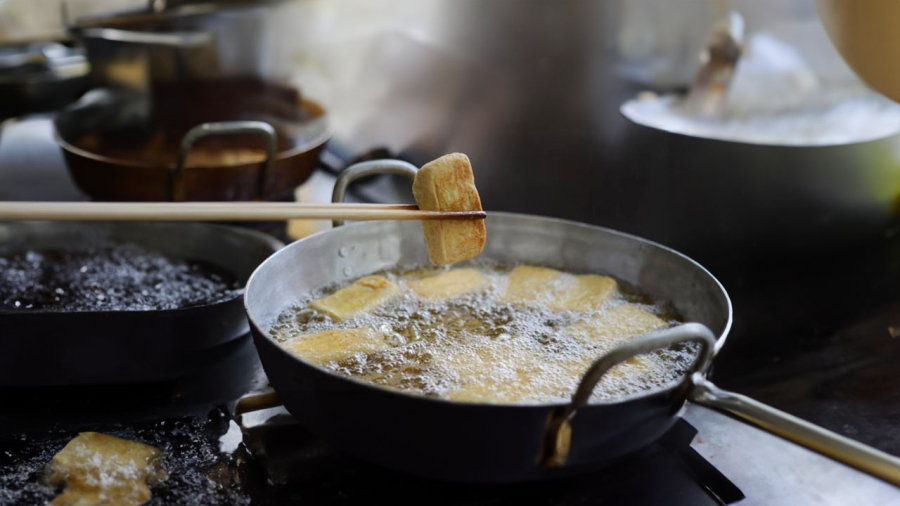
Absolutely do not use sharp tools to clean non-stick pans.
Similarly, non-stick rice cookers should not be used when the inner pot is peeling or scratched, as they can also release harmful substances.
According to nutrition expert Ann Louise Gittleman, to completely avoid chemicals, you can use cast iron pans or stainless steel pans. The advantage of cast iron is that it is easy to clean, versatile, and inexpensive, but the disadvantage is that it is quite heavy. Stainless steel pans can withstand high temperatures and are suitable for sautéing and frying meat, but the disadvantage is that they can be easily burned if the temperature is too high, making them difficult to clean.
How Often Should Women Replace Non-Stick Pans?
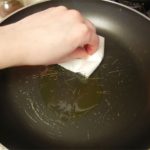 Pans?’>
Pans?’>With non-stick pots and pans still being widely used despite their decreased effectiveness, many are wondering: Could this have an impact on people’s health?

























